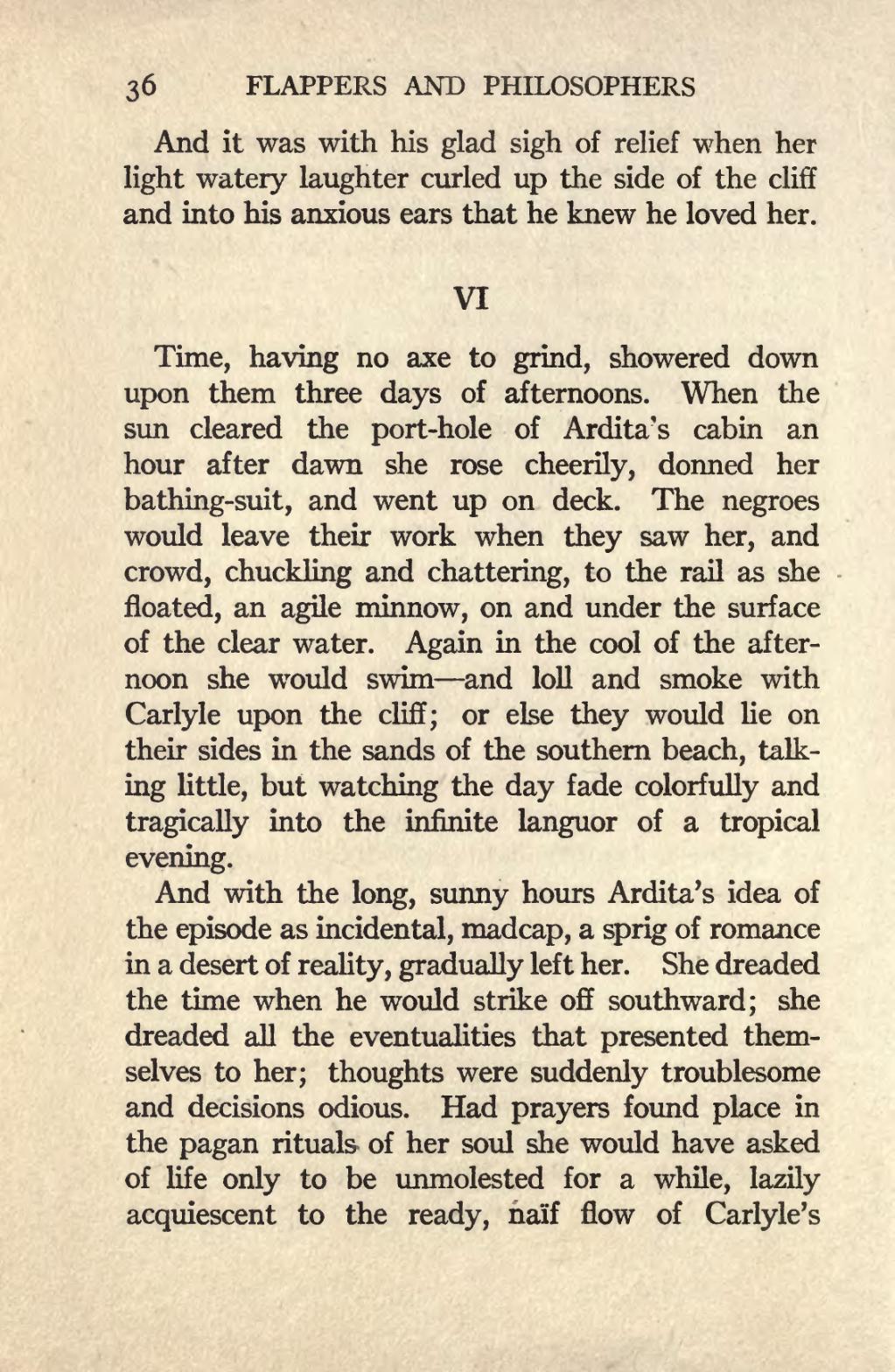And it was with his glad sigh of relief when her light watery laughter curled up the side of the cliff and into his anxious ears that he knew he loved her.
VI
Time, having no axe to grind, showered down upon them three days of afternoons. When the sun cleared the port-hole of Ardita's cabin an hour after dawn she rose cheerily, donned her bathing-suit, and went up on deck. The negroes would leave their work when they saw her, and crowd, chuckling and chattering, to the rail as she floated, an agile minnow, on and under the surface of the clear water. Again in the cool of the afternoon she would swim—and loll and smoke with Carlyle upon the cliff; or else they would lie on their sides in the sands of the southern beach, talking little, but watching the day fade colorfully and tragically into the infinite languor of a tropical evening.
And with the long, sunny hours Ardita's idea of the episode as incidental, madcap, a sprig of romance in a desert of reality, gradually left her. She dreaded the time when he would strike off southward; she dreaded all the eventualities that presented themselves to her; thoughts were suddenly troublesome and decisions odious. Had prayers found place in the pagan rituals of her soul she would have asked of life only to be unmolested for a while, lazily acquiescent to the ready, naïf flow of Carlyle's
